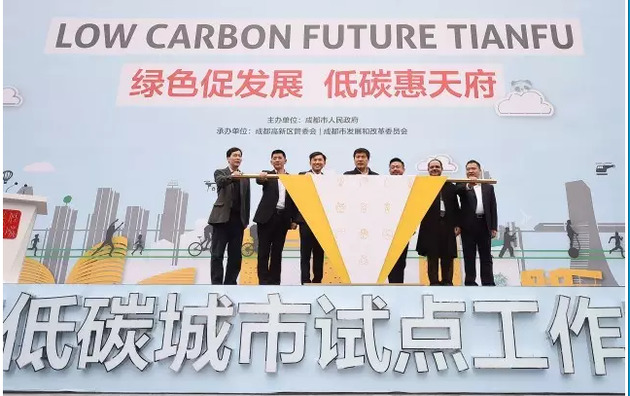
Chengdu, the provincial capital of southwestern China's Sichuan province, on Friday announced the launch of related work to build itself a national low-carbon city.
According to a circular issued by the National Development and Reform Commission on the third batch of national low-carbon pilot cities, the southwestern city will peak carbon emissions by 2025.
To achieve the goal, the city plans to establish a new assessment mechanism to maintain synchronization of economic and ecological development and create a clean, renewable energy system and industry system in addition to improving city plan, developing green buildings, and restoring pedestrian and bike system.
Part of Chengdu's "Low Carbon Future Tianfu" program, bike sharing has achieved great headway there, echoing the tone set in the circular and showing the city's efforts in developing green, low-carbon economy.
Meanwhile, the city is promoting the low-carbon city construction through the cooperation with foreign countries like Switzerland, said Liu Qiang, director of the planning development of the National Center for Climate Change Strategy and International Cooperation, National Development and Reform Commission.
In December 2016, Chengdu inked a joint statement with Switzerland to promote the Sino-Swiss Low-carbon Cities project in the city.
Moreover, Chengdu reported positive growth in the number of newly registered market participants in six out of eight strategic emerging industries. In particular, the new-energy vehicle industry presented the most remarkable performance there, with the number of newly registered market participants soaring 215.79 percent and the amount of newly added registered capital skyrocketing by 2025.55 percent.
Given the city's opening up and the local government's capital and policy support, Chengdu will have a brilliant future in the development of green, low-carbon economy.
Email: lansuying@nbd.com.cn


 川公网安备 51019002001991号
川公网安备 51019002001991号





